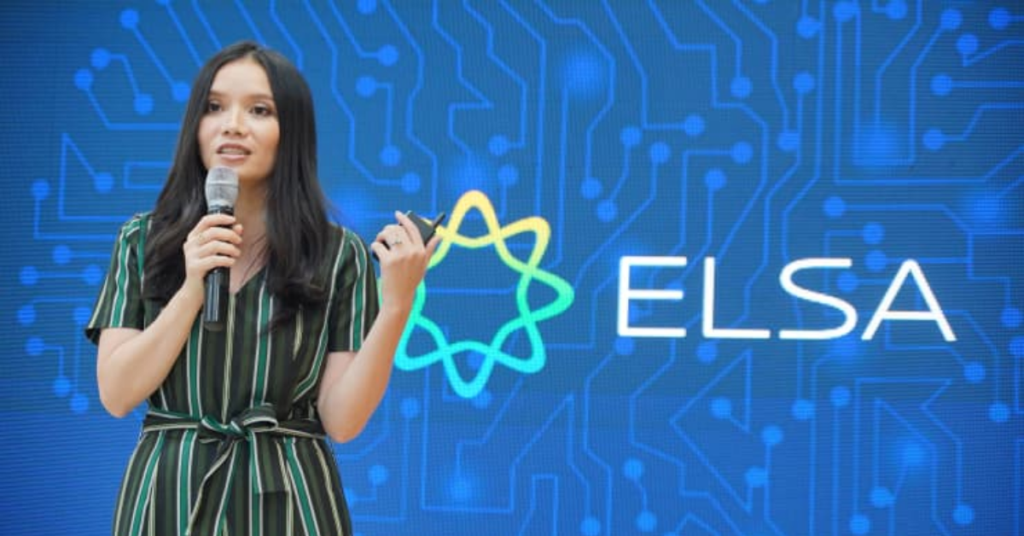
Google’s AI-focused Gradient Ventures kicked off 2021 by leading a USD15m Series B for ELSA, a Vietnam-based edtech focused on English learning, with participation from Vietnam Investments Group, SIG, Endeavor Catalyst, and Globant Ventures, and follow-on from Monk’s Hill Ventures and SOSV.
EMPEA interviewed ELSA co-founder and CEO Vu Van about how her experience studying at Stanford inspired her to launch a better way for people to learn the English language, why Google approached her to invest, and why ELSA has its sights set on Latin America as its next market of expansion.
EMPEA: Who are the founders, when did you start the company, and why?
Vu Van: ELSA was founded by myself, a Stanford University alumna, and Dr. Xavier Anguera, a speech processing expert with 20+ years experience in research. The idea for ELSA came about when I moved to the US for my MBA and Masters in Education at Stanford. My first year at Stanford was very challenging because of my inability to speak English fluently, even though I was among the top students in the English subject when I studied in Vietnam. Often, people misunderstood me. I lost confidence and missed out on important opportunities because of my English skills.
Speaking is the hardest skill to master because it requires consistent one-on-one practice.
Most non-native speakers struggle to fix pronunciation mistakes after the age of six, and most people can’t afford to have a personal, native English coach. That is why I decided to develop ELSA, an artificial intelligence “coach” that allows everyone to practice speaking English like a native speaker 24/7 from the comfort of their home. Our vision is to enable the 1.5 billion English learners around the world to speak English with full confidence, which opens up opportunities for a better life.
Is this your first funding from outside investors?
We have had a USD7m round of series A funding (led by Google’s AI fund Gradient Ventures); other external investors include Monk’s Hill Ventures and angel investors.
What is different about ELSA’s approach to English language education?
ELSA is, at the moment, dedicated to English, even though our engine allows us to build out programs for other languages as well.
Our approach is different from the traditional method of textbook-first, grammar-first teaching. Instead, we focus on speaking and offer bite-sized lessons in real-life contexts, such as small talk at work, delivering a presentation, going for a job interview, or casual situations like going to the movies, eating at a restaurant, etc. We focus on speaking practice and emphasize correct pronunciation and intonation, so that learners can become confident at speaking and expressing themselves in English.
ELSA is the only engine out there that can recognize a wide range of English-speaking accents and be able to detect pronunciation mistakes up to the phoneme level at 95% accuracy. The closer the user sounds to a native speaker, the more confident they become, and the more effective their communication is likely to be. That is how ELSA differs from other products.

Can you share anything about your traction/growth over the past year?
In 2020, our revenue grew by 3x due to strong inbound B2B demand and a wave of user adoption spurred by an increase in work from home. We have partnered with over 200 B2B partners, including schools, English language centers, corporations, as well as government bodies, to have ELSA complement their curriculum, serve as practice homework, or as an integral part of the corporate training programs to better employees’ English and hence improve productivity at the workplace.
What are your current markets of operation, and why did you choose Latin America for expansion?
We are in Vietnam, India, and Japan. Vietnam is our home market and where we have become the most well known English app, with over six million users. India and Japan are newer markets (we have been active there for the past year) with a lot of potential for us, given the traction we have seen.
We chose Latin America because, similar to Vietnam and India, well-spoken English can amount to a 2-3x pay increase. From a macro perspective, the LatAm market is a fast growing English learning market. E-learning has taken off in Latin America; the market size is estimated to be USD3b and experiencing double digit annual growth.
Traditionally, Latin America has lagged behind in brick and mortar education infrastructure, but the market is making up for it in fast e-learning adoption. LatAm is a world leader in mobile adoption with over 60% of its 690 million population having access to mobile internet. Learners in the market are enthusiastic about improving their career prospects, and we believe that ELSA is a good fit for professionals as well as students who are hoping to improve their English for better career advancements.
You have an interesting mix of investors. How are your investors supporting you (beyond providing capital)? How did you get connected with Gradient and Globant Ventures?
Gradient Ventures actually reached out to us; after talking, we aligned on vision for the product and our technology and we are fortunate to have them on board.
Globant Ventures is a connection through the Endeavor network, of which I and ELSA are a part. Endeavor connects high-impact entrepreneurs around the world to each other and to a network of mentors. We are honored to be part of the network and have been able to benefit from top-class advice from its mentors.